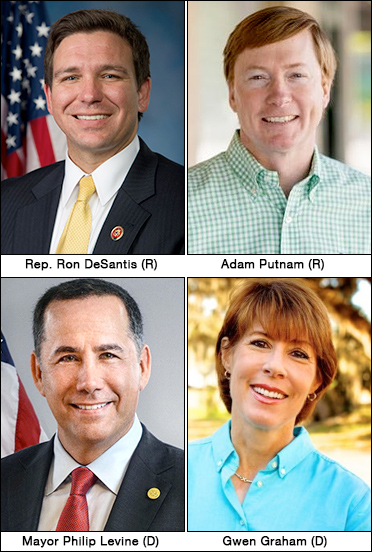Aug. 16, 2018 — There has been no race in this current election cycle that has featured more swings among the candidates than the open Florida governor’s campaign. What makes it even more interesting is that the wide swings are happening virtually simultaneously in both parties.
Yesterday, several polls were released showing more change in both nomination contests as the Aug. 28 primary date draws nearer. On the Republican side, the new Survey USA poll (Aug. 10-13; 558 likely Florida Republican primary voters) finds the contest again reverting into the toss-up realm after Rep. Ron DeSantis (R-Palm Coast/Daytona Beach) had opened a discernible advantage over agriculture commissioner and former US Congressman Adam Putnam. According to this latest S-USA result, the DeSantis lead is now only 40-38 percent.
A pair of polls was also released on the Democratic side and, as for their Republican counterparts, the nomination race is again getting close. After leading for most of the early campaign, Miami Beach Mayor Philip Levine fell behind former US Rep. Gwen Graham (D-Tallahassee), but studies from Survey USA (Aug. 10-13; 631 likely Florida Democratic primary voters) and Schroth, Eldon & Associates (Aug. 11-14; 600 likely Florida Democratic primary voters) see a re-tightening of this contest, too.

